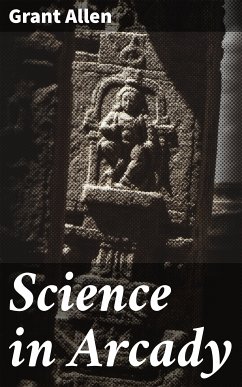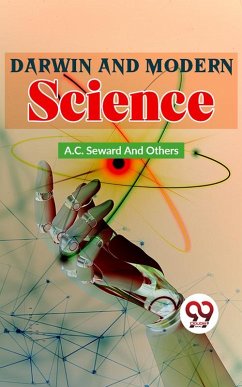
Popular scientific lectures (eBook, ePUB)
Versandkostenfrei!
Sofort per Download lieferbar
1,99 €
inkl. MwSt.
Weitere Ausgaben:

PAYBACK Punkte
0 °P sammeln!
In "Popular Scientific Lectures," Ernst Mach presents a compelling collection of talks that elegantly demystify complex scientific principles for a general audience. Written in a clear and engaging style, the lectures explore the foundations of physics, emphasizing the importance of empirical observation and the philosophical implications of scientific theories. Mach's integration of scientific discourse with his critical stance on positivism offers profound insights into the nature of knowledge and reality, making this work a significant contribution to the philosophy of science during the la...
In "Popular Scientific Lectures," Ernst Mach presents a compelling collection of talks that elegantly demystify complex scientific principles for a general audience. Written in a clear and engaging style, the lectures explore the foundations of physics, emphasizing the importance of empirical observation and the philosophical implications of scientific theories. Mach's integration of scientific discourse with his critical stance on positivism offers profound insights into the nature of knowledge and reality, making this work a significant contribution to the philosophy of science during the late 19th century. Ernst Mach, a prominent physicist and philosopher, profoundly influenced the fields of science and philosophy. His work came at a time when scientific thought was rapidly evolving, and his rejection of absolute concepts in favor of relativity echoed the sentiments of contemporaries like Albert Einstein. Mach's experiences as an educator and his commitment to accessible science fostered a passion for distilling complex ideas into coherent narratives, a hallmark of his lectures. "Popular Scientific Lectures" is an essential read for anyone intrigued by the historical context of scientific thought and its philosophical ramifications. It is particularly recommended for students and educators seeking clarity in the realms of physics and philosophy, subtly guiding the reader to appreciate the profound connections between the two disciplines.
Dieser Download kann aus rechtlichen Gründen nur mit Rechnungsadresse in A, B, BG, CY, CZ, D, DK, EW, E, FIN, F, GR, H, IRL, I, LT, L, LR, M, NL, PL, P, R, S, SLO, SK ausgeliefert werden.













